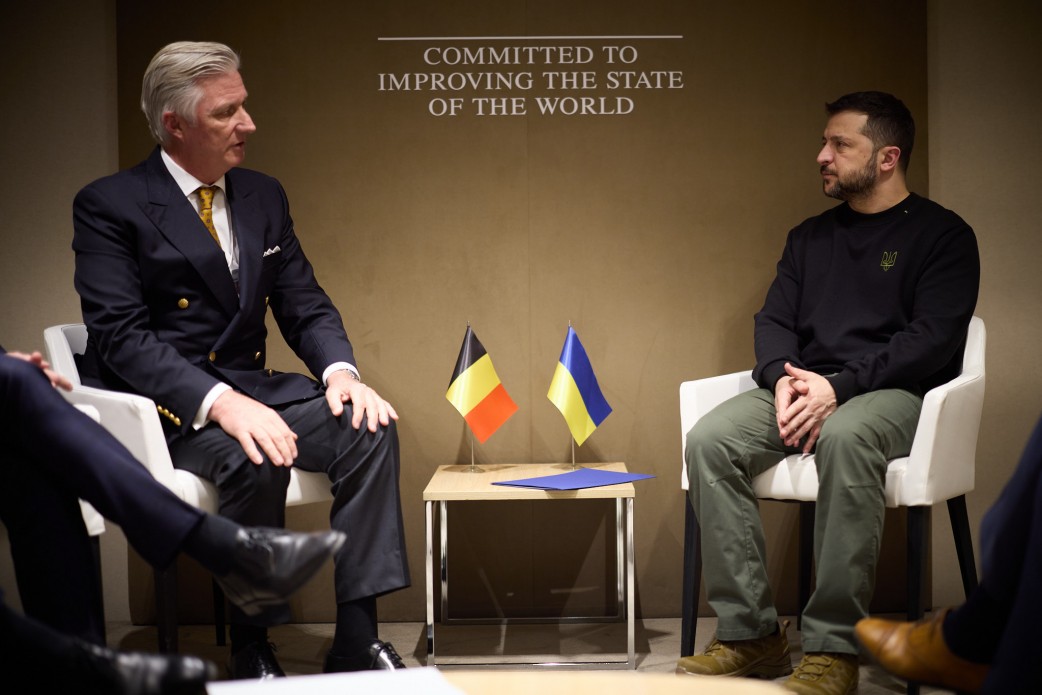Belgium in Contemporary Uncertainty. The War in Ukraine and the Return of National Interest
Author: Mr. Edouard Xia, PhD student, UClouvain, Belgium
This working paper has been originally presented at the Social Sciences Seminar held at the United States Military Academy West Point, New York on 5 February 2025

President of Ukraine held a meeting with the King and the Prime Minister of Belgium, 16 January 2024 https://www.president.gov.ua/en/news
-
Introduction: The war in Ukraine and Belgium’s National Interest
The return to a hot phase of the war in Ukraine has undeniably had, and continues to exert, transformative effects. One of them is the continuation of the reshaping of the international system. As Robert Kagan aptly notes in his metaphorical observation: “The jungle grows back” (Kagan, 2018).
The war in Ukraine has revealed a distinct bipolar dynamic, prompting certain political circles to draw parallels with the Cold War era, this time with China (Charillon, 2023; 125). The transatlantic alliance and consultations within the G77 contrast sharply with Russia’s economic dependence to China. Initially, China’s policy reflected a position of non-intervention, even as its rhetorical stance implicitly supported Russia (Biscop, 2022). At present, both China and the West appear to be pursuing similar strategies: “Doing enough for ‘their’ side to stop it from losing the war, but otherwise sitting it out in the hope that the other side will somehow give up” (Biscop, 2024).
However, to some extent, the events that unfolded the last two years rather confirm the fact that the world order has now broadly tipped towards multipolarity and fragmentation. Medium-sized powers, such as India, South Africa, Brazil, and Turkey, are refusing to align fully with either Russia or the West and are capitalizing on opportunities arising from this geopolitical fragmentation (Tocci, 2023). This trend is further exemplified by Qatar’s gas policy, the expansion of Emirati economic influence in Africa, and Saudi Arabia’s deployment of soft power.
Amid the rediscovery of geopolitics and realpolitik, the postmodern European Union (EU) finds itself navigating troubled waters, grappling with its role and the nature of its power (Deschaux-Dutard & Nivet, 2024). Furthermore, the national interests of EU member states are delicately balanced between pursuing strategic autonomy, addressing economic challenges exacerbated by de-risking, and maintaining domestic stability (Bocquillon et al., 2024). Among these member states, Belgium offers an intriguing case study, exemplifying the ongoing debates surrounding EU-NATO relations, the evolution of multilateralism, and the costs associated with membership in a deeply integrated regional organization.
This paper aims to analyze the impact of the war in Ukraine on Belgium’s national interest and, ipso facto, on its traditional foreign policy, which has been marked by continuity since World War II (Franck, 2001). This analysis is based on seven months of field research at the Belgian Ministry of Foreign Affairs, notably on the coordination of European sanctions at the Belgian level, complemented by insights gathered through a dozen semi-structured interviews with prominent diplomats.
